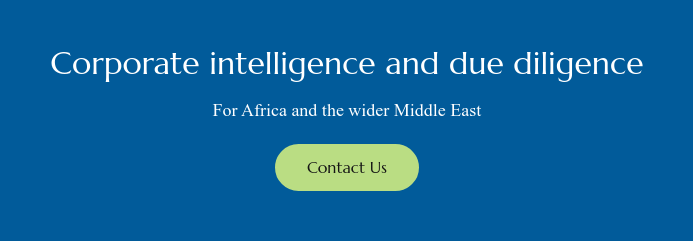The 2015 UAE Commercial Companies Law – Clarified by Diligencia
Read moreGermany’s new supply chain due diligence law – a model for the future of global compliance and corporate responsibility?
According to the German government, around 80% of worldwide trade relies on global supply chains. Take the automotive industry for example, cars manufactured in Germany are likely to have parts that were manufactured, assembled and built in several other countries. Often these production lines involve countries where the risk of poor working conditions, forced or child labour is high. The need for companies to conduct due diligence along their supply chains is therefore integral to mitigating these risks and improving human rights around the world.1 Germany’s new Supply Chain Due Diligence Act (Lieferkettensorgfaltspflichtengesetz, or LkSG), in force since the beginning of this year, promises to reinforce this effort by imposing strict and extensive compliance requirements on German companies with regards to human rights and social risks.
In its scope, the LkSG is currently the most far-reaching and comprehensive in the world. Similar laws are being considered in other European countries such as Austria, Belgium, Finland and the Netherlands, and the European Union’s own Supply Chain Directive was passed on 1 June this year. Examining the impact of this new legislation on companies’ due diligence processes, it is clear that a significant overhaul of existing compliance processes will be required.
 An overview of the current state of supply chain laws across Europe.2
An overview of the current state of supply chain laws across Europe.2
Due diligence obligations for companies
Firstly, the act directly affects all German companies regardless of their legal form, head office and principal location of operation. Initially companies with fewer than 3,000 employees will be exempt from the regulations; however, from 2024, companies with over 1,000 employees will also have to comply. Smaller companies will have to adhere with aspects of the LkSG too.
Secondly, the LkSG establishes a duty of effort rather than a duty of success. This means that companies need to demonstrate that they have done everything within their abilities to prevent and mitigate human rights-related risks along its supply chain. The legislator in charge of monitoring and enforcing the LkSG, the German Federal Office for Economic Affairs and Export Control (BAFA), will be responsible for checking the implementation of policies and processes within companies, rather than their effectiveness. It promises to conduct in-depth audits and on-site visits (domestic and international) in order to assess whether these policies and processes are being implemented to the best of the companies’ abilities.
The LkSG requires all companies affected by the law to establish an in-house body that is responsible for human rights protection, including:
- Implementing a human rights-related management and analysis system
- Declaring basic principles for the protection of human rights in business
- Implementing preventative measures for their own business and with direct and indirect suppliers
- Establishing a complaints procedure and remedial actions in the event of a violation
- Conducting due diligence and continuous monitoring of suppliers.3
The LkSG primarily applies to companies’ own business operations as well as direct suppliers; however, it also requires companies to act if they discover violations on the part of indirect suppliers.4
If a company is found to have violated aspects of LkSG, there are several levels of penalties that may be imposed. For individuals such as owners, directors and compliance officials, a fine may go up to 800,000 Euros, whereas corporate fines may exceed 400 million Euros or up to 2% of annual profits. In addition, companies can be excluded from public tenders in Germany for up to three years as a punishment for violating the LkSG. The law, however, does not provide for civil liability: any company found to be in breach will be obliged to pay a fine to the State, and not to the injured party.5
Effects of the LkSG on companies
Although this law is an important step towards increased corporate responsibility, critics have pointed out a number of downsides. In a study ‘Evaluating the Economic Impact of a Due Diligence Law’, the Kiel Institute for the World Economy predicts the following burdens on companies affected by the LkSG:
- The cost of overhauling compliance processes and policies will disproportionately hit SMEs
- Supplier costs will likely increase
- Poorer countries with weak institutions that are part of the global supply chain may suffer economically: if they cannot uphold the standards that the LkSG requires, German firms may be forced to withdraw from these markets, taking away much needed employment opportunities.6
Unsurprisingly conservative politicians and industry groups in various countries have lobbied to minimise the scope of similar legislation, arguing that the increased costs of implementing such stringent due diligence and compliance programmes will make companies uncompetitive in the global market.7 However an EU study on ‘Due Diligence Requirements through the Supply Chain’ suggests otherwise, finding that most companies should be able to implement such processes and policies without a notable dent in profits.8
The first draft of the LkSG estimates the total implementation costs across the German economy at around 43 million Euros per year, an estimate which may prove to be conservative depending on the extent to which companies choose to comply.9 The EU also makes the case that the implementation of vigorous due diligence processes is an investment into a more sustainable future; it argues that human rights violations and environmental damage must be minimised on a global scale to promote development and prosperity.10
Outlook
While the LkSG has been criticised for not imposing civil liability, the EU’s Supply Chain Directive, which was passed on 1 June 2023,11 is promising to be even stricter than its German counterpart. It will require companies to extend their due diligence processes to indirect suppliers too, thereby monitoring the entire supply chain. The EU Directive will also apply in full to all companies with over 250 employees.
Although the LkSG is currently the only one of its kind in its scope and stringency, laws with similar effect already exist in other countries, including the UK (the UK Modern Slavery Act of 2015), the US, Switzerland and Norway. Other, stricter laws are bound to follow from other European countries and eventually these policies will become the norm across the board. With this in mind, companies across the continent are advised to plan ahead and prepare for the implementation of similar legislation in their respective countries. Designing a proportionate and risk-based due diligence programme, making full use of automation tools where possible, will become key to successful and efficient compliance. Using accurate and reliable data sources can help streamline such due diligence processes, especially in opaque markets where it is difficult to find the corporate information necessary to ensure a compliant supply chain.
Diligencia helps customers from around the world to find essential information on organisations registered in Africa and the wider Middle East, drawing on primary sources that are otherwise hard to find. Using our curated data, we enable our clients to effectively manage their compliance obligations, allowing them to continuously monitor their suppliers and counterparty risks in the MEA region.
-
Federal Ministry for Economic Cooperation and Development: More fairness in global supply chains – Germany leads the way
- European Coalition for Corporate Justice: Map showing Supply Chain Laws in progress
- Bundesgesetzblatt: Gesetz über die unternehmerischen Sorgfaltspflichten in Lieferketten
- Rödl & Partner: The new German Supply Chain Due Diligence Act (LkSG) – what needs to be done
- Taylor Wessing: Überblick über das Lieferkettensorgfaltspflichtengesetz (LkSG)
- Kiel Institute for The World Economy: Economic Evaluation of a Due Diligence Law
- EQS: Lieferkettengesetz: Unternehmen haften für Missstände bei Zulieferern
- Publication Office of the EU: Study on due diligence requirements through the supply chain
- Gleiss Lutz: Der Entwurf des „Sorgfaltspflichtengesetz“ – Neue Handlungspflichten für Unternehmen in der Lieferkette
- Supply Management: EU supply chain due diligence directive to eliminate ‘cowboy companies’
- Elevate: EU Parliament approves supply chain due diligence directive, kicking off a wake-up call for companies

